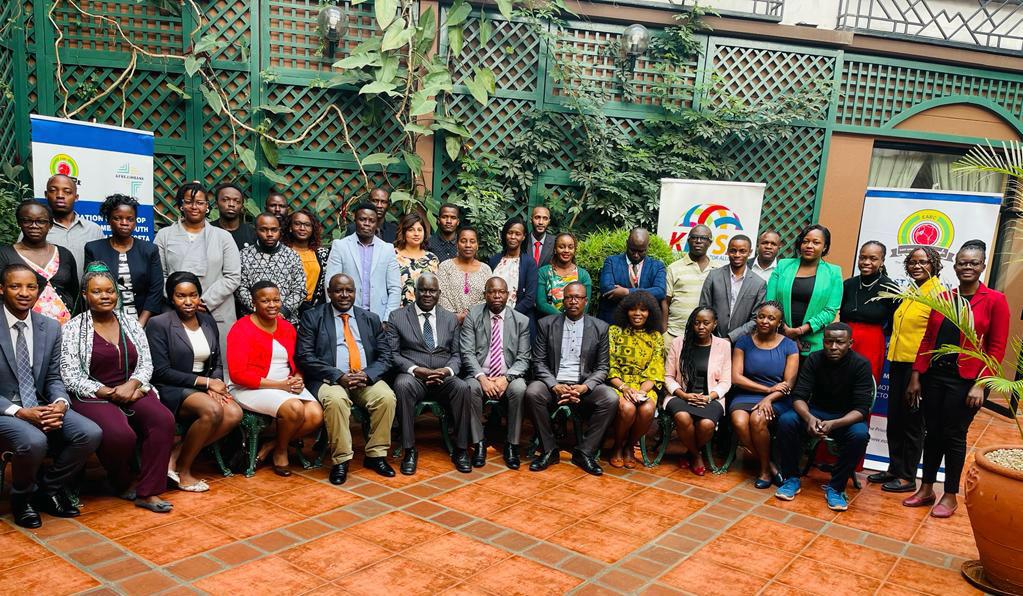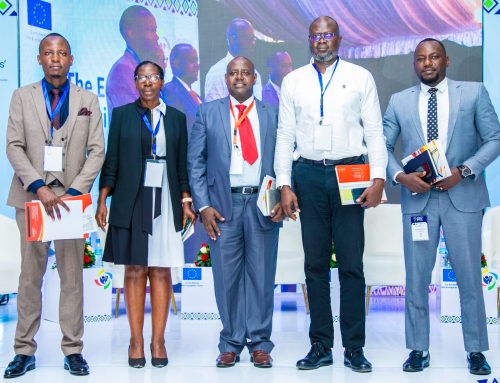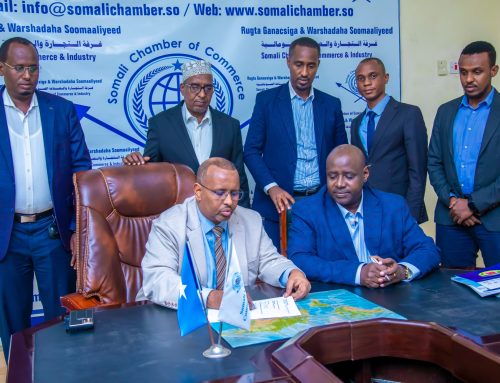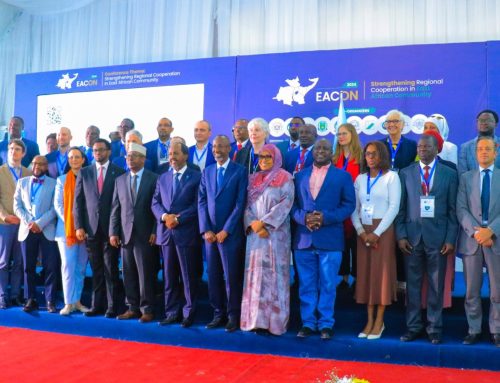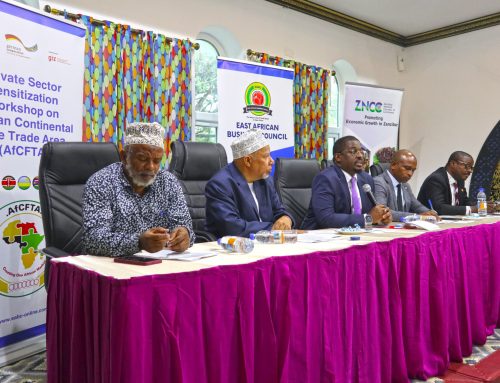23rd August 2023, the East African Business Council (EABC) in partnership with the African Export-Import Bank (Afreximbank) extended capacity-building training to SMEs and women in business in Kenya on the African Continental Free Trade Area (AfCFTA) protocols and their relevance to business in the EAC Region.
This partnership aims to address competitive and capacity gaps within the EAC private sector, especially for SMEs, with a view to maximizing the benefits of the AfCFTA Agreement implementation.
Mr. John Bosco Kalisa, the CEO of the East African Business Council, stated during his opening remarks that statistics show that the EAC is the most performing Regional Economic Community (REC) in Africa, despite the external shocks the world has faced, such as climate change, the Russia-Ukraine war, and the COVID-19 pandemic.
He emphasized that private sector commitments drive a solid and robust economy through engagements between the public and private sectors, investment engagements, as well as by targeting women and youth, given that more than 70% of Africa’s population consists of youth. Additionally, 90% of the EAC economy is contributed by SMEs.
He urged that by 2050, Africa’s GDP is projected to reach 29 trillion USD if the AfCFTA is well-implemented by enhancing productivity in trade in goods and services, particularly in the priority service sectors under the AfCFTA. He also emphasized the need for EAC to expand its reach into the West and Central markets.
He concluded by appreciating Afreximbank for their continued support to the private sector and commended their Pan African Payment & Settlement System (PAAPS) initiative, which aims to transform cross-border payments in Africa.
Mr. Victor Ogalo, Deputy CEO of KEPSA, expressed appreciation to EABC and Afreximbank for organizing this valuable training for Kenyan SMEs. He highlighted that Africa contributes 30% – 35% of raw materials to the global market, but only contributes 17% of the world’s economy. He stressed the need for deeper integration to increase Africa’s exports beyond raw materials.
He further emphasized that Africa has remained a potential-rich region for years, yet the continent is not fully capitalizing on these opportunities. Challenges such as limited access to information, inadequate capacity, risk payment systems, foreign exchange costs leading to losses of about 8 billion USD, and restricted access to finance still hinder SMEs. Despite these challenges, SMEs should not miss the chance to maximize the opportunities available under the AfCFTA.
On behalf of the Principal Secretary of the Ministry of Investments, Trade, and Industry in Kenya, Mr. Olivier Konje, Director of International Trade, applauded EABC for their commendable work in building capacity for SMEs on the AfCFTA. He highlighted the significant progress made in steering regional integration on the continent.
He emphasized that AfCFTA is not solely for major players; there are substantial benefits for SMEs and women in trade as well. To fully harness the opportunities presented by AfCFTA, it is crucial for both the public and private sectors to collaborate in creating an enabling environment for business growth. The private sector is an engine of economic growth, driving innovation, job creation, and wealth generation.
Mr. Konje concluded by stating that while AfCFTA holds immense potential for the African continent, it carries significant implications for SMEs and women entrepreneurs in the EAC. Hence, Partner States, regional institutions, and stakeholders must collaborate to effectively harness these opportunities. The Ministry of Trade remains open to assisting SMEs facing challenges in cross-border exports.
This SMEs and Women in Business national workshop has provided a potential opportunity for over 40 Kenyans to understand how they can maximize the benefits of the AfCFTA Agreement implementation. SMEs play a crucial role in generating employment, contributing to economic growth and development not only in Kenya but also across the EAC and Africa as a whole. This workshop encourages participants to take advantage of the opportunities presented by the Guided Trade Initiative.

